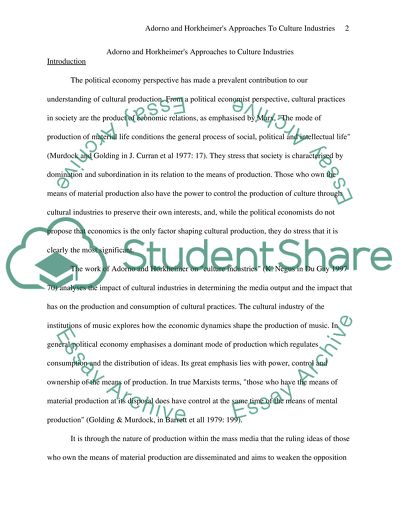Cite this document
(“Culture Industries Essay Example | Topics and Well Written Essays - 3000 words”, n.d.)
Retrieved from https://studentshare.org/sociology/1531866-culture-industries
Retrieved from https://studentshare.org/sociology/1531866-culture-industries
(Culture Industries Essay Example | Topics and Well Written Essays - 3000 Words)
https://studentshare.org/sociology/1531866-culture-industries.
https://studentshare.org/sociology/1531866-culture-industries.
“Culture Industries Essay Example | Topics and Well Written Essays - 3000 Words”, n.d. https://studentshare.org/sociology/1531866-culture-industries.


